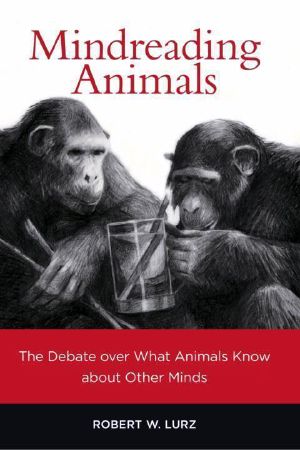Mindreading Animals · The Debate over What Animals Know about Other Minds

- Authors
- Lurz, Robert W.
- Publisher
- A Bradford Book
- ISBN
- 9781386113867
- Date
- 2011-07-29T00:00:00+00:00
- Size
- 1.14 MB
- Lang
- en
Animals live in a world of other minds, human and nonhuman, and their well-being and
survival often depends on what is going on in the minds of these other creatures. But do animals
know that other creatures have minds? And how would we know if they do? In Mindreading
Animals, Robert Lurz offers a fresh approach to the hotly debated question of mental-state
attribution in nonhuman animals. Some empirical researchers and philosophers claim that some animals
are capable of anticipating other creatures' behaviors by interpreting observable cues as signs of
underlying mental states; others claim that animals are merely clever behavior-readers, capable of
using such cues to anticipate others' behaviors without interpreting them as evidence of underlying
mental states. Lurz argues that neither position is compelling, and proposes a way to move the
debate, and the field, forward.
Lurz presents a new approach to understanding what
mindreading in animals might be, offering a bottom-up model of mental-state attribution that is
built upon cognitive abilities that animals are known to possess rather than on a preconceived view
of the mind applicable to mindreading abilities in humans. Lurz goes on to describe an innovative
series of new experimental protocols for animal mindreading research that overcome a persistent
methodological problem in the field, known as the "logical problem" or "Povinelli's challenge."
These protocols show in detail how various types of animals -- from apes to monkeys to ravens to
dogs -- can be tested for perceptual state and belief attribution.